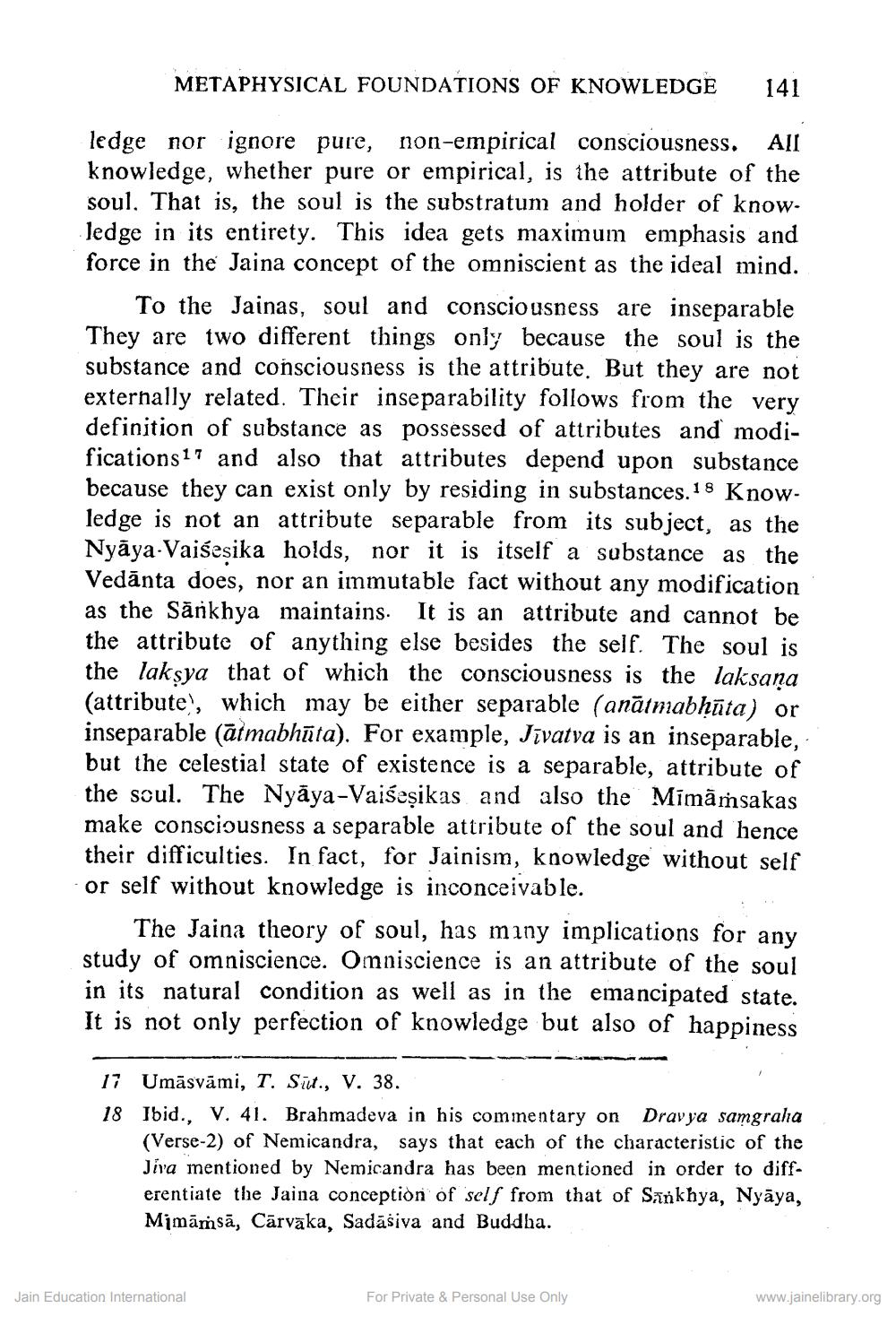________________
METAPHYSICAL FOUNDATIONS OF KNOWLEDGE
141
ledge nor ignore pure, non-empirical consciousness. All knowledge, whether pure or empirical, is the attribute of the soul. That is, the soul is the substratum and holder of knowledge in its entirety. This idea gets maximum emphasis and force in the Jaina concept of the omniscient as the ideal mind.
To the Jainas, soul and consciousness are inseparable They are two different things only because the soul is the substance and consciousness is the attribute. But they are not externally related. Their inseparability follows from the very definition of substance as possessed of attributes and modifications17 and also that attributes depend upon substance because they can exist only by residing in substances. 18 Knowledge is not an attribute separable from its subject, as the Nyāya Vaiśesika holds, nor it is itself a substance as the Vedānta does, nor an immutable fact without any modification as the Sănkhya maintains. It is an attribute and cannot be the attribute of anything else besides the self. The soul is the laksya that of which the consciousness is the laksana (attribute), which may be either separable (anātmabhūta) or inseparable (ātmabhūta). For example, Jīvatva is an inseparable, but the celestial state of existence is a separable, attribute of the soul. The Nyāya-Vaiseșikas, and also the Mimāṁsakas make consciousness a separable attribute of the soul and hence their difficulties. In fact, for Jainism, knowledge without self or self without knowledge is inconceivable.
The Jaina theory of soul, has miny implications for any study of omniscience. Omniscience is an attribute of the soul in its natural condition as well as in the emancipated state. It is not only perfection of knowledge but also of happiness
17 Umāsvāmi, T. Sit., V. 38. 18 Ibid. V. 41. Brahmadeva in his commentary on Dravya samgraha
(Verse-2) of Nemicandra, says that each of the characteristic of the Jira mentioned by Nemicandra has been mentioned in order to differentiate the Jaina conception of self from that of Sankhya, Nyāya, Mimāmsā, Cārvāka, Sadāsiva and Buddha.
Jain Education International
For Private & Personal Use Only
www.jainelibrary.org




